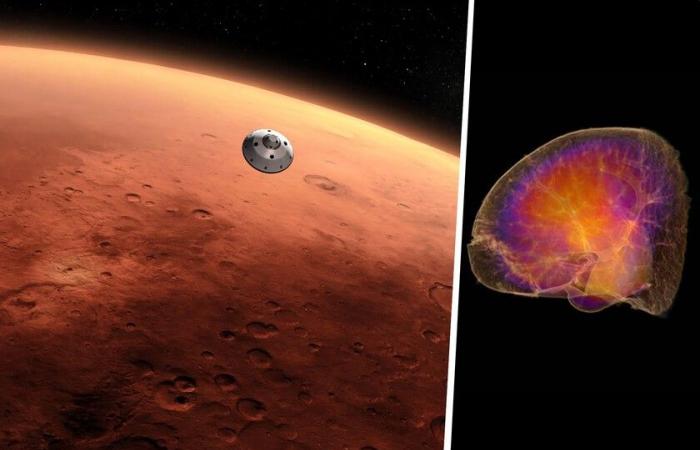We know that microgravity affects our bones, eyes and heart, but the great biological obstacle to reaching another planet for the first time is our kidneys.
Since man first left Earth in 1961, scientists have been obsessed with the effects of space on the human body. We know that microgravity affects our bones, eyes and heart, but the great biological obstacle to reaching another planet for the first time is our kidneys.
The largest study on kidney health in space. New research led by scientists at University College London (UCL) suggests that our kidneys would not survive a round trip to Mars. Nor to a long-term stay on the Moon.
Published in Nature Communications, it is the largest analysis to date of kidney health in spaceflight. It includes data from both astronauts and simulated space missions with mice, some of which were given the dose of cosmic radiation that humans would receive on flights to Mars lasting about two years.
The findings are not encouraging at all. The study shows that the kidneys deform under the conditions of outer space. Renal tubules, responsible for regulating calcium and salt balance, show signs of shrinking in less than a month of exposure to space travel, in both humans and animals.
Until now, kidney stone formation in space was believed to be due to bone loss induced by microgravity, which releases calcium into the urine. However, the UCL team has found that microgravity fundamentally alters the way the kidneys process salts, significantly contributing to stone formation.
The role of radiation Researchers attribute this phenomenon to microgravity rather than radiation, although they still do not fully understand how these two variables interact.
The Earth protects us from space radiation thanks to its magnetic field, but beyond this protective bubble, astronauts are completely exposed to solar winds and cosmic radiation.
The most alarming finding is that mice exposed to simulated radiation for two and a half years suffered permanent kidney damage and loss of kidney function.
A dialysis for the way back. “If we don’t develop new ways to protect the kidneys while an astronaut travels to Mars, they may need dialysis on the way back,” explains Keith Siew, lead author of the study.
Despite the discouraging conclusion, the study also opens the door to possible solutions. Researchers believe that by better understanding how kidneys behave under the influence of radiation and microgravity, technological or pharmaceutical solutions could be developed to protect kidney function during long space flights.
Images | NASA, Chutong Zhong, Zhongwang Li, Peter Gordon and Keith Siew
In Xataka | A SpaceX flight made its astronauts genetically younger. The intriguing thing is that it lasted only three days






